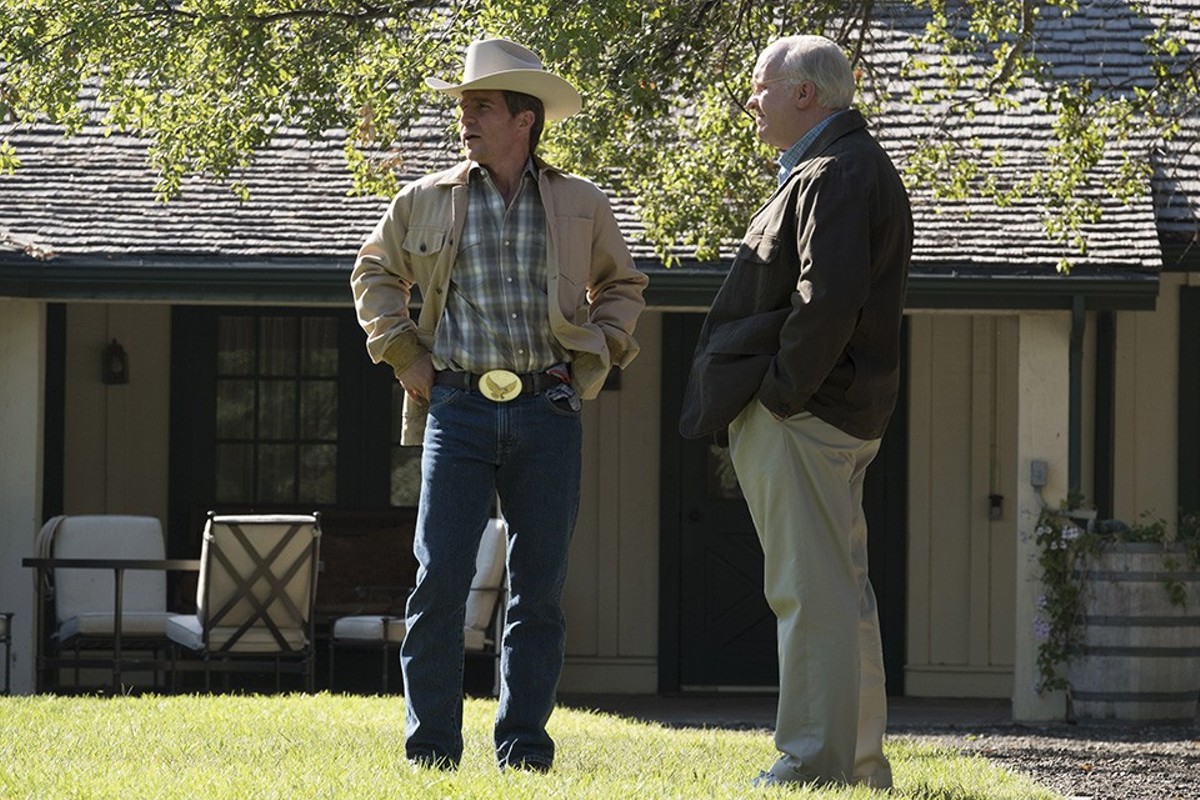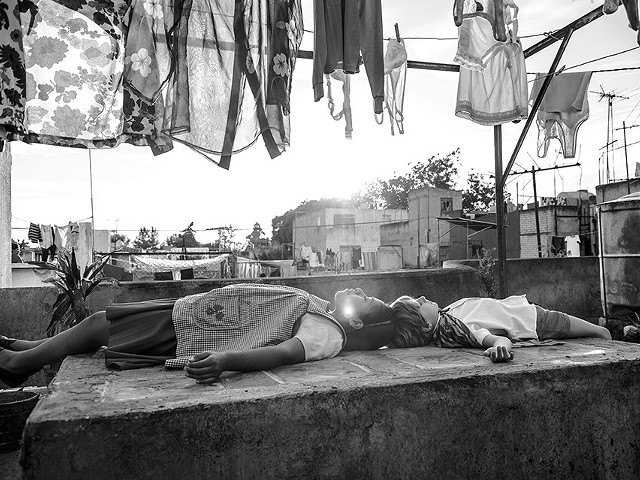The position of Vice President of the United States is often seen as a dead end to a political career, a semi-honorary title whose bearer maintains high public visibility while simultaneously performing a disappearing act. Few Vice Presidents relished their obscurity as much as Dick Cheney, whose eight years in office made him both one of the most disliked and most powerful men ever to hold his job.
Vice Presidents rarely lead the kind of life that lends itself to stage or screen; the ingenious new film Vice reveals Cheney (like Alexander Hamilton) to be an exception. Writer-director Adam McKay tells Cheney's story from his drunken college days through his service to four administrations and up to his current period of retirement. Along the way, it provides a sharp lesson on the changing nature of executive power in the last four decades. Did I mention that it's a comedy?
McKay is best known for his partnership with Will Farrell as writer and director of comedies like Anchorman and Talladega Nights, but a sly political activism often lurks behind his work, as in Farrell's 2010 buddy-cop comedy The Other Guys, where he used the end credits to provide an animated guide to subjects like Bernie Madoff and the cost of the government's Wall Street bailout. In 2015's The Big Short, a comic explanation of the subprime mortgages and the 2007 mortgage crash, the story was often interrupted so that economic ideas could be explained by the likes of Margot Robbie and Selena Gomez.
Vice takes the satirical didacticism of The Big Short and quadruples it, using a grab bag of cinematic tricks — montage, false endings and an occasional on-screen commentator who takes the concept of the unreliable narrator to an extreme — to show Cheney's rise to power, and to analyze what it means. It's smart, caustic and bitterly funny. McKay has done his homework, but he doesn't let his political points step on his punchlines (or vice versa). The result is a powerfully inventive satire, a political film like no other.
Many filmmakers and dramatists have tried to recreate contemporary or near-contemporary events, but the results seldom rise above the level of political cartoons. (Think of Oliver Stone's forgettable W, in which Cheney was played by Richard Dreyfuss, or almost any episode of Saturday Night Live from the last 40 years.) Vice, like most of those works, offers a parade of performers recreating familiar faces, but mostly avoiding simple caricature. Christian Bale is excellent as Cheney, combining Raging Bull-like physical commitment (he reportedly gained 40 pounds for the film) with a profound understanding of the ruthlessness of his character. Amy Adams is equally astonishing as his Machiavellian wife Lynne, while Steve Carell lends a kind of blithe, bumbling innocence to Cheney's mentor/foil Donald Rumsfeld.
McKay presents Cheney as an architect of the system that sought to give unlimited power to the Presidency, which he then usurped. This leads to the never-ending cycle of war and crisis that began in the first Bush presidency (Naomi Wolf's famous "Shock Doctrine") and culminated in the pervasive winning-is-everything philosophy of our current politics. McKay sees Cheney and his wife (who is complicit in his worst impulses) as Shakespearean figures. They are as greedy and scheming as the Macbeths but unconstrained by the customs of royalty — but McKay abruptly plays it down as a joke once the point is made.
While McKay covers a wide array of political events and ideas, he does not lose sight of the human aspects of the story. The political and historical turmoil are carefully surrounded by the details of Cheney's family life. His marriage to the equally ambitious Lynne, the subsequent public career of daughter Elizabeth (currently a U.S. Representative), and, most tellingly, his relationship with his openly gay daughter Mary, whose coming out was originally seen as a political liability. In one of the film's most memorable scenes, McKay plays a prank on the viewer that also sets in place one of the film's more devastating themes, the conflict between the grasping for power and what most people would define as basic human decency. How, the film asks, does the relentless pursuit of power change a man? What does it do to his personal life, his very spirit? The answer isn't pretty.






